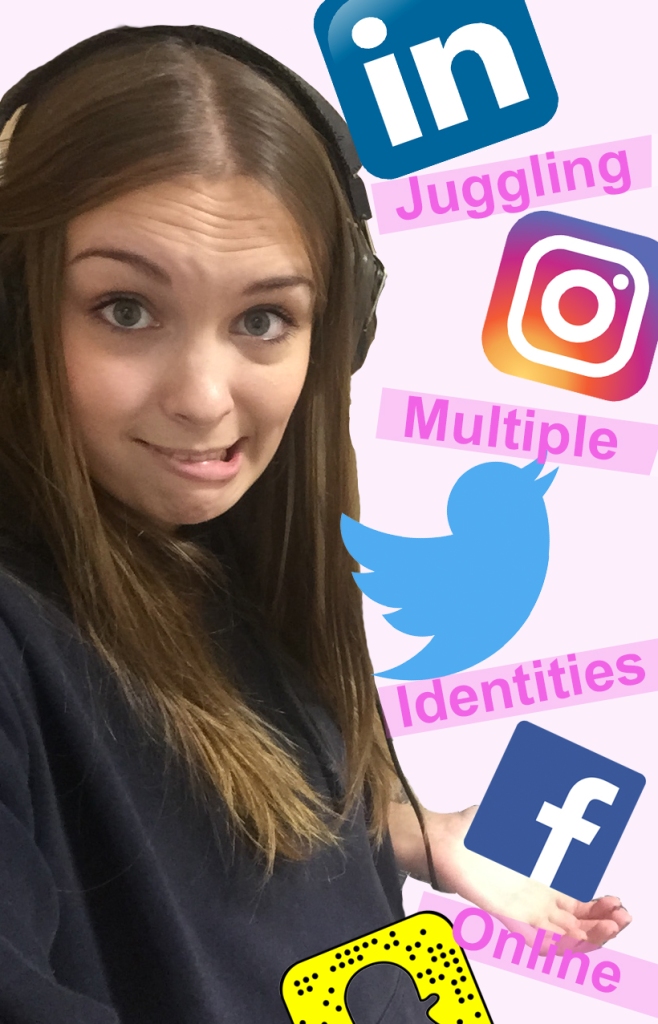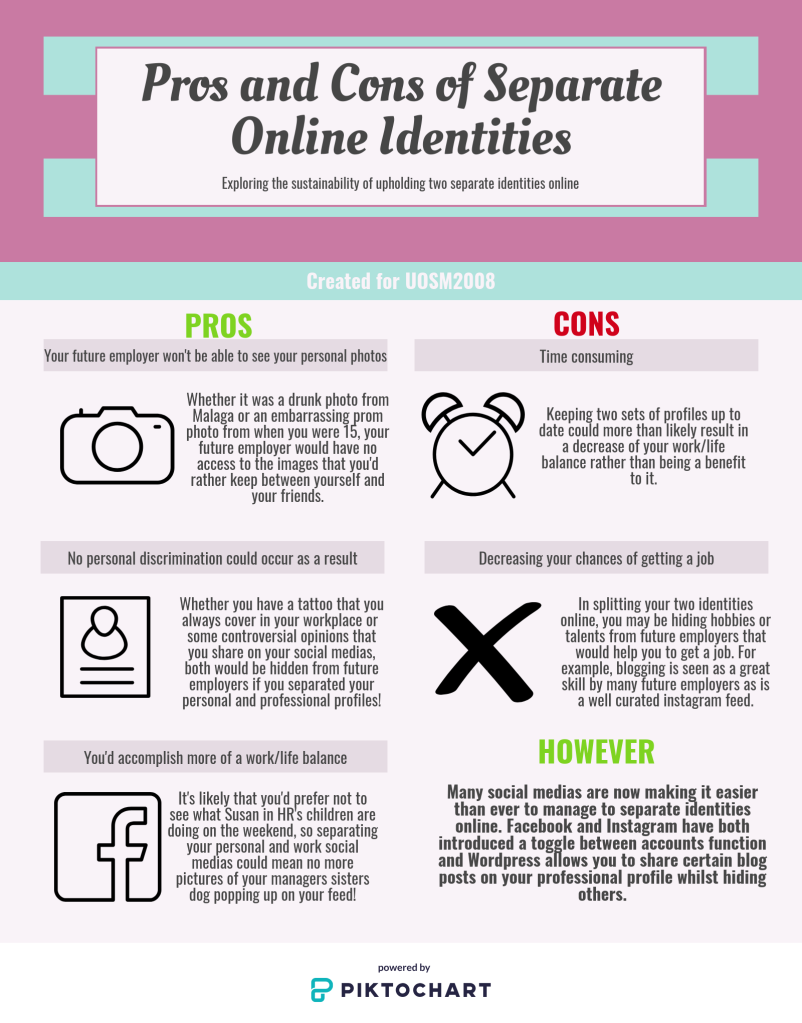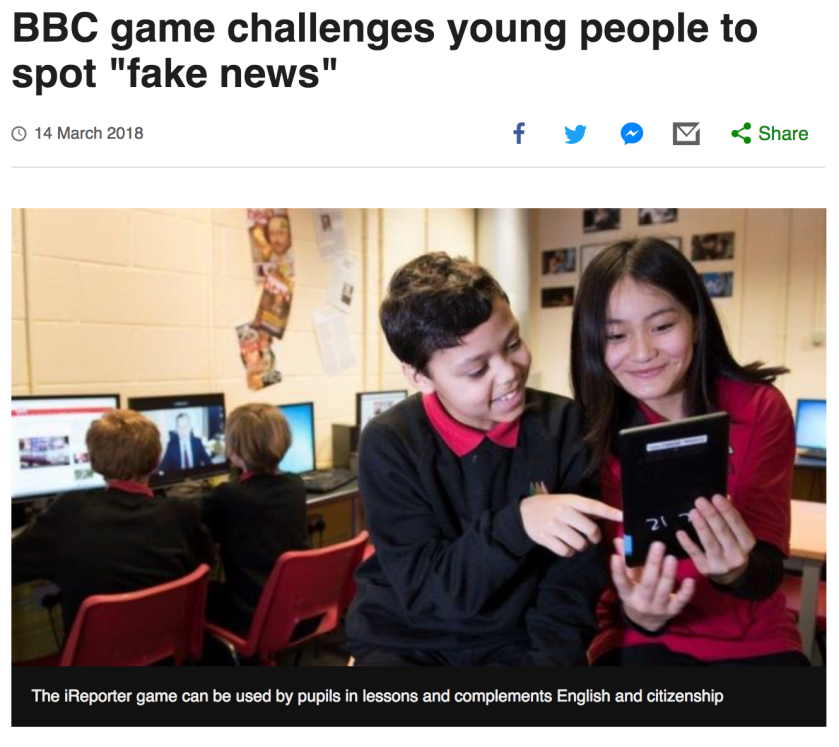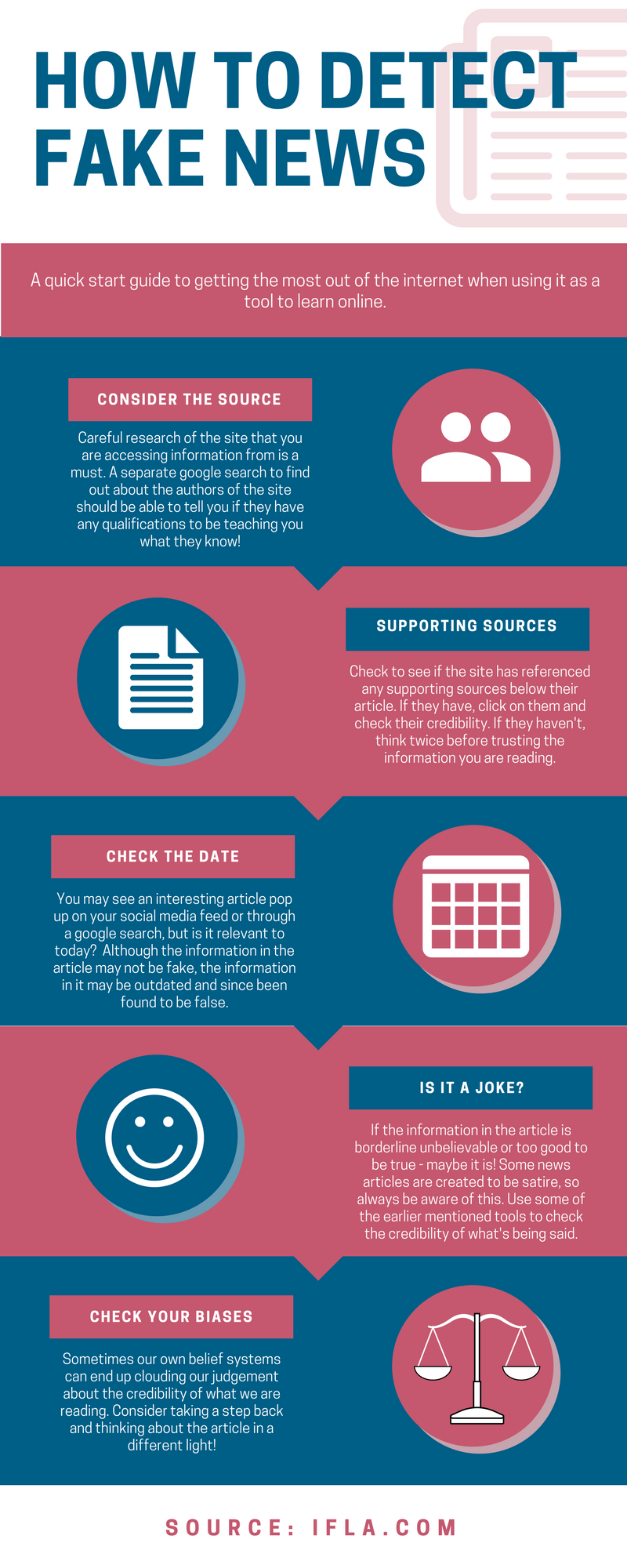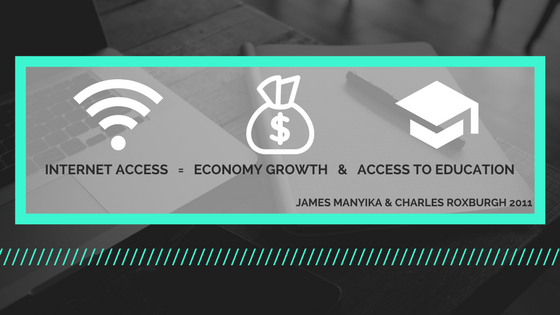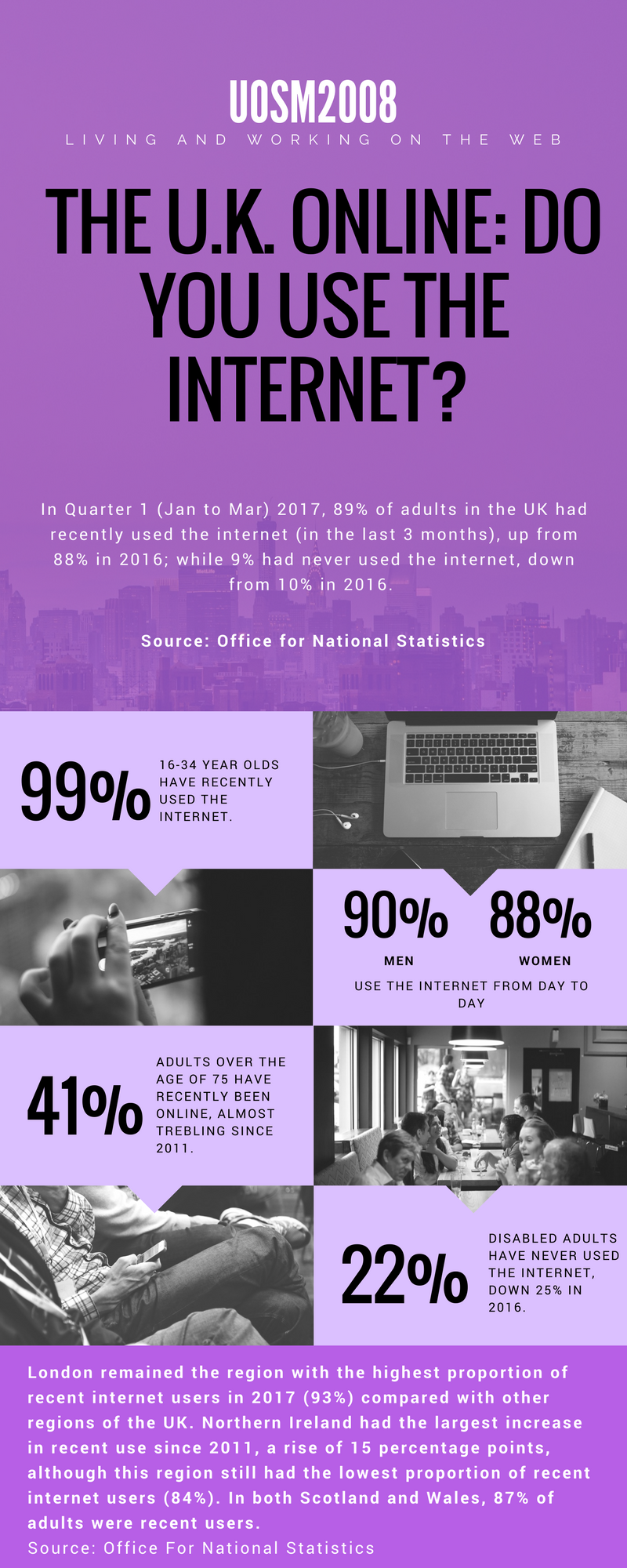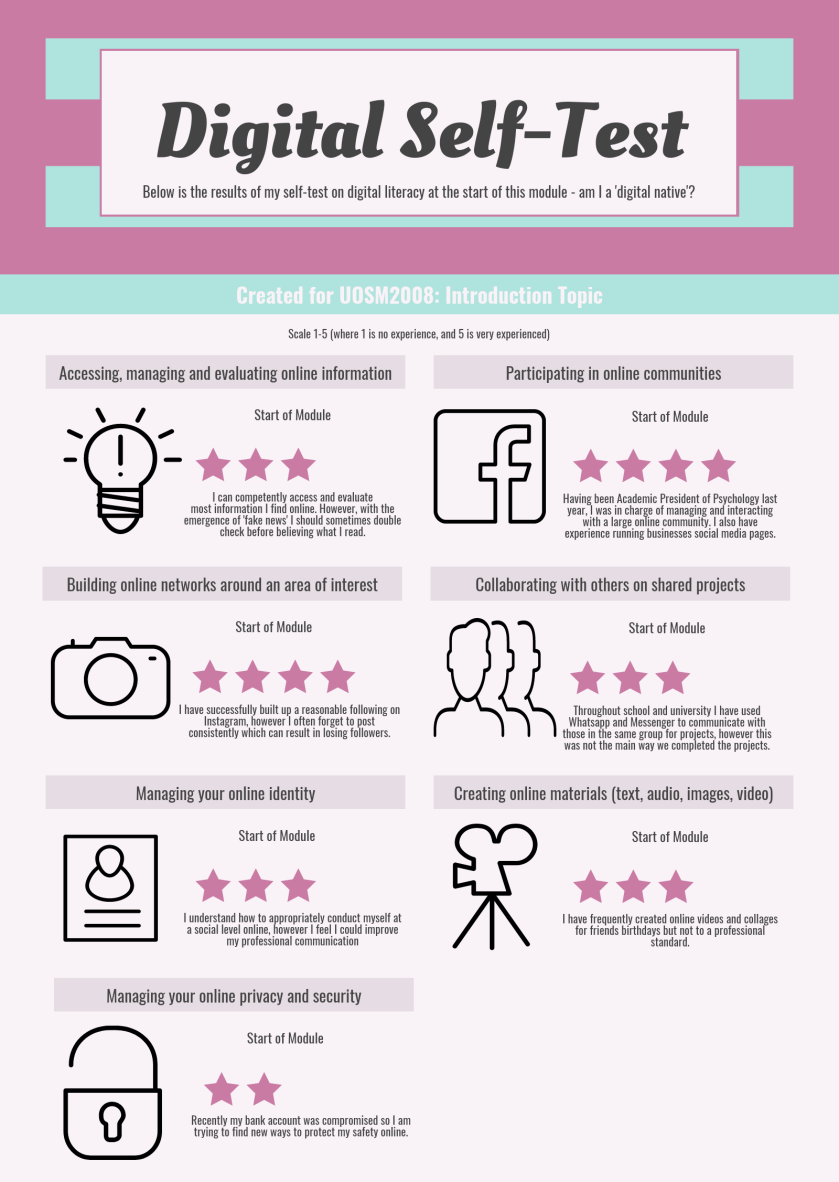
My UOSM2008 Journey
This module has helped me to develop my skills, expand my knowledge and change my overall views of the internet. To discover just how far I have come, I will will be using Smyth’s ‘Reflection on Action’ method of evaluation (1989) to describe, inform, confront and destruct my UOSM2008 journey.
Describe
What have I done throughout this module?
Over the last 12 weeks I have started a blog themed around the idea of ‘Living and Working on the Web.
Continue reading →

